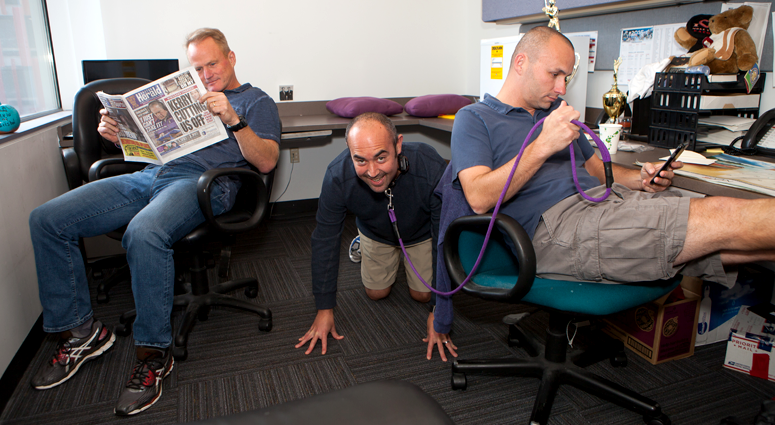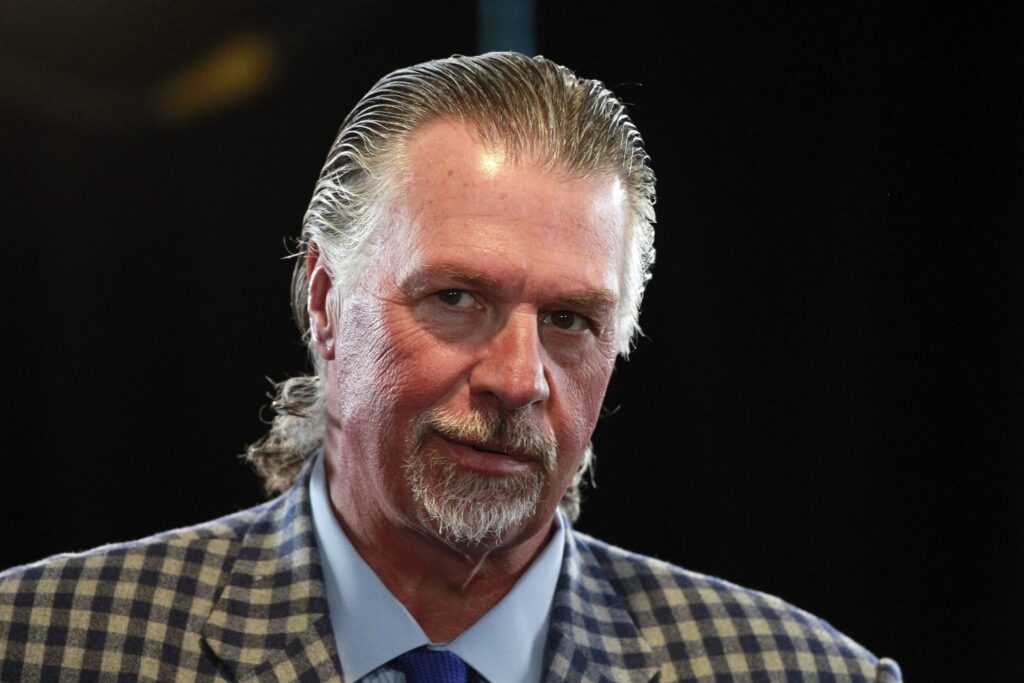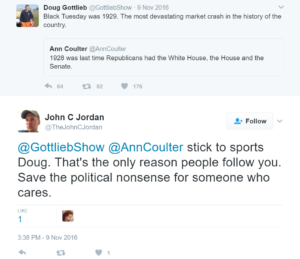You saw the tweet. We all saw the tweet. The clock on the East Coast was just about to signal the transition from Friday night into Saturday morning when our President officially declared social media war on LeBron James.
Lebron James was just interviewed by the dumbest man on television, Don Lemon. He made Lebron look smart, which isn’t easy to do. I like Mike!
— Donald J. Trump (@realDonaldTrump) August 4, 2018
Before we go any further, I feel it is imperative to share this tweet with you, because it is all I have been able to think about the last 48 hours.
Trump’s LeBron tweet is way funnier if you imagine the “I like Mike!” wasn’t about Jordan but was actually referring to Mike Dunleavy, Jr.
— sreekar (@sreekyshooter) August 4, 2018
Nine times out of ten, we would never talk politics on our shows, right? There are definitely the exceptions like Kirk & Callahan at WEEI in Boston on one side of the political spectrum and Matt Jones of Kentucky Sports Radio on the other. Both of those shows have had their toes in political waters long enough that their listeners know it is part of what they are signing up for when they tune in. Most of us though are hit with the dreaded #StickToSports the second political or social commentary rears its head on our airwaves.
So what are the rules now that the highest office in the United States is filled by someone that can’t stop tweeting, and whose tweets so often focus on what is happening in the NFL or on what athletes are and are not invited to the White House? Add to that the rate at which we are seeing athletes and coaches weigh in on politics, and maybe we are living in a world now where you can talk about this stuff and still actually be sticking to sports!
The question you have to answer then is not one of “Should I?” but instead “How far can I go?”.
There is more of an appetite for political conversation and commentary now than ever before. The Athletic’s Richard Deitsch acknowledged recently that is one of the factors that has hurt ESPN’s new morning show Get Up! when he was asked if the rumored arrival of rotating guest hosts could save the show.
It could help the chemistry of the show but there were so many factors working against “Get Up!” from the start, which former president John Skipper strangely failed to see. Those included overvaluing Mike Greenberg’s appeal on linear television, the migration of TV eyeballs to cable news in the morning in the Trump era, and the pushing back of the show’s start date which created an optic that ESPN didn’t know what the show was.
To me, that is an acknowledgment that it isn’t just the woke or the QAnon believers out there. We all have some desire to stay informed and engage in the political discussion.
Maybe though the question to ask after you read that quote is “How much can we count on television audiences to reflect the desire of radio audiences?”. Those are two media that are consumed very differently. I have CNN on in the background most mornings when I am getting ready, and I couldn’t tell you who the anchor is, but when it comes to the Dan Le Batard Show, which I also consume most days, I can recite my favorite “What He Looks Like” bits from memory.
Side note: no one will ever top “Barry Melrose looks like the guy thrown into the jukebox during a bar fight that causes the jukebox to play ‘Taking Care of Business.'”
There is something to the intimacy of talk radio. Our listeners bond with us in a way they simply can’t with the guy introducing the new one from Bruno Mars on the pop station or a television news anchor. Yes, it is because we let them into our lives more than the other examples mentioned, but also it’s also because we let them into our minds. Injecting opinion is one of the deadliest of sins for news anchors. That is literally the only thing we do!
You built your audience by giving opinions, so it stands to reason that if you’re going to talk about something politically charged, you should give an opinion. It also makes sense that if you go to the political well too often on a sports station, you are going to alienate some listeners, especially the ones that disagree with you.
W. Kamau Bell, the stand up comedian and host of a number of different cable shows that examine race in America, has a great bit on one of his albums about an interviewer asking him when it is okay for a white guy to use the N word. After some joking about the ridiculousness of the question, Bell concludes “It is acceptable for a white person to say (the N word) when he can deal with the consequences of saying (the N word).”
Maybe that is a good operating procedure for sports radio. Feel free to talk about politics as often as you want so long as you are prepared to deal with the consequences of talking about politics.
Those consequences may come from your boss or from listeners directly, but if you say something that anyone deems controversial or wrong, no matter how silly you think their opinion of what you said is, there is some consequence. It may be one particularly irate listener calling your advertisers. It may be several Twitter followers dismissing you with #StickToSports.
Donald Trump has inserted himself into issues in the NFL and the NBA. He had to be corrected when he tried to strong arm African countries into supporting the joint bid between the US, Canada and Mexico for the 2026 World Cup. Whether you hate the guy or love the guy, there are times you can talk about him and still be sticking to sports. You don’t need to invent reasons to bring up the President or politics in general on your show.
There is a portion of your audience that you will lose the second you shift into political or social commentary, so if you feel like you have to talk about a politically charged topic, make sure your opinion and the segment as a whole has value beyond simply shock value. The folks that will stick with you do so because they either agree with what you are saying or recognize that you are delving into a topic relevant to the day’s sports conversation. Invent reasons to bring it in, and you’re going to be dismissed as acting in bad faith and trying to be divisive.

Demetri Ravanos is a columnist and features writer for Barrett Media. He is also the creator of The Sports Podcast Festival, and a previous host on the Chewing Clock and Media Noise podcasts. He occasionally fills in on stations across the Carolinas in addition to hosting Panthers and College Football podcasts. His radio resume includes stops at WAVH and WZEW in Mobile, AL, WBPT in Birmingham, AL and WBBB, WPTK and WDNC in Raleigh, NC.
You can find him on Twitter @DemetriRavanos or reach him by email at DemetriTheGreek@gmail.com.







